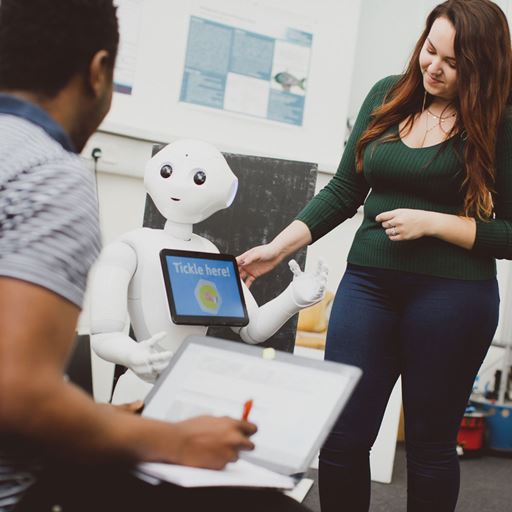Computer Science is sixth for research power
-
Date
Fri 20 May 22

The strength of our work in computer science and informatics means the University of Essex is ranked sixth for research power by Times Higher Education (THE) following the publication of the Research Excellence Framework 2021.
REF2021 rated 100% of Essex's research impact in computer science as world-leading or internationally excellent, the 9th highest rating in the UK for research impact.
Head of the School of Computer Science and Electronic Engineering, Professor Reinhold Scherer, said: "We are delighted with the REF2021 results. They underline both the exceptional impact of our research and the successful growth of our School, which is now ranked sixth in the UK for research power performance."
REF2021 is the system for assessing the quality and impact of research at UK universities and highlights the University of Essex’s impressive growth and increasing impact. Times Higher Education's research power measure looks at REF2021's assessment of research outputs, research impact and research environment alongside the number of staff submitted by each institution for each unit of assessment.
REF2021 shows that Essex is one of the largest and strongest centres for computer science research in the UK with Essex submitting the fifth highest number of computer science and informatics researchers to REF2021 with 73 full-time equivalent staff contributing to the submission. 94.5% of research outputs were rated world-leading or internationally excellent by the REF2021 panel.
Research Impact
Essex has a long-standing tradition of research in artificial intelligence (AI) and communications. It was one of the first UK universities to house a central research activity in AI and pioneered a systems approach to telecommunications.
Four research groups are now based in the School of Computer Science and Electronic Engineering:
- Artificial Intelligence
- Brain Computer Interfaces and Neural Engineering
- Communications and Networks
- Robotics and Embedded Systems
Research within the School focuses on exploring fundamental questions in these areas, while applied research is undertaken to provide technological and engineering solutions, methods, algorithms and frameworks to pressing problems.
Visit our Research Showcase pages to find out more about our research impact:
- Insight: Uing the data revolution to solve real world issues - Our academics, led by Professor Maria Fasli, carried out work to ensure that the benefits of the data revolution reach everyone, and that developing countries have the skills they need.
- Insight: Big data, big threat? - What are the implications of big data on our privacy, democracy, and security? How can it be used to target humanitarian aid? Who gets to access it? This interdisciplinary project brought together researchers from the School of Computer Science and Electronic Engineering, Sociology, Law, and the Human Rights Centre, as well as academics at the University of Cambridge and Queen Mary University of London
- Impact: Reporting wartime rights abuses - Researchers in the School of Computer Science and Electronic Engineering developed a tool that utilises social media data mining and live mapping, to allow real-time reporting of human rights violations in Iraq.
.jpg?mh=500&mw=500&hash=6568B6C9CCF5290A596BEF6678B6AD0E)



